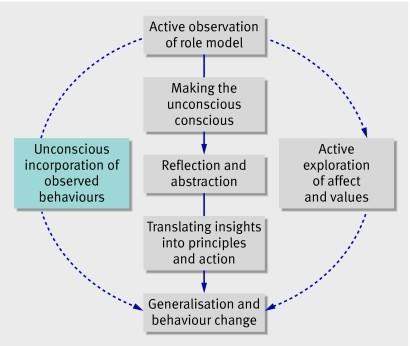Role models in the corporate context are the star performers at work. They are seasoned individuals, within the same job function, that your learners should shadow for optimal results. The more learners collaborate with these role models, the more they will imitate and model their good behaviors. Role models are important because the way learners perceive their roles during their training period is essential to their development. Through these realizations, learners become more aware of the importance of leadership within their position in the company. Learners become inspired to be more proactive and seek ownership of their growth and skills. By analysing their own performance as role models, individuals can improve their personal performance.
Learning from role models occurs through observation and reflection, and is a complex mix of conscious and unconscious activities. We are all aware of the conscious observation of behaviours, but understanding the power of the unconscious component is essential. Active reflection on the process can convert an unconscious feeling into conscious thought that can be translated into principles and action. In an equally powerful process, observed behaviours are unconsciously incorporated into the belief patterns and behaviours of the student.

